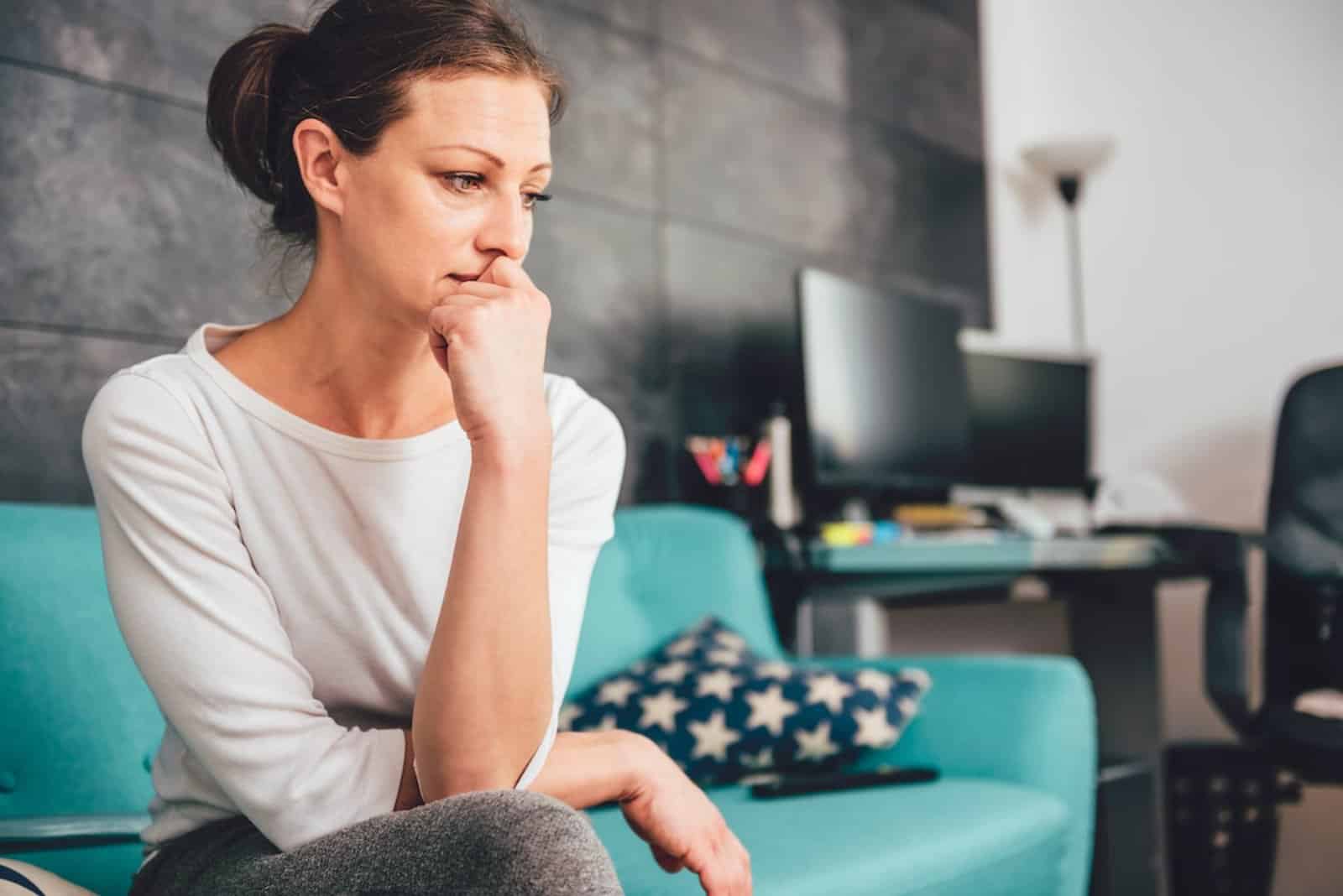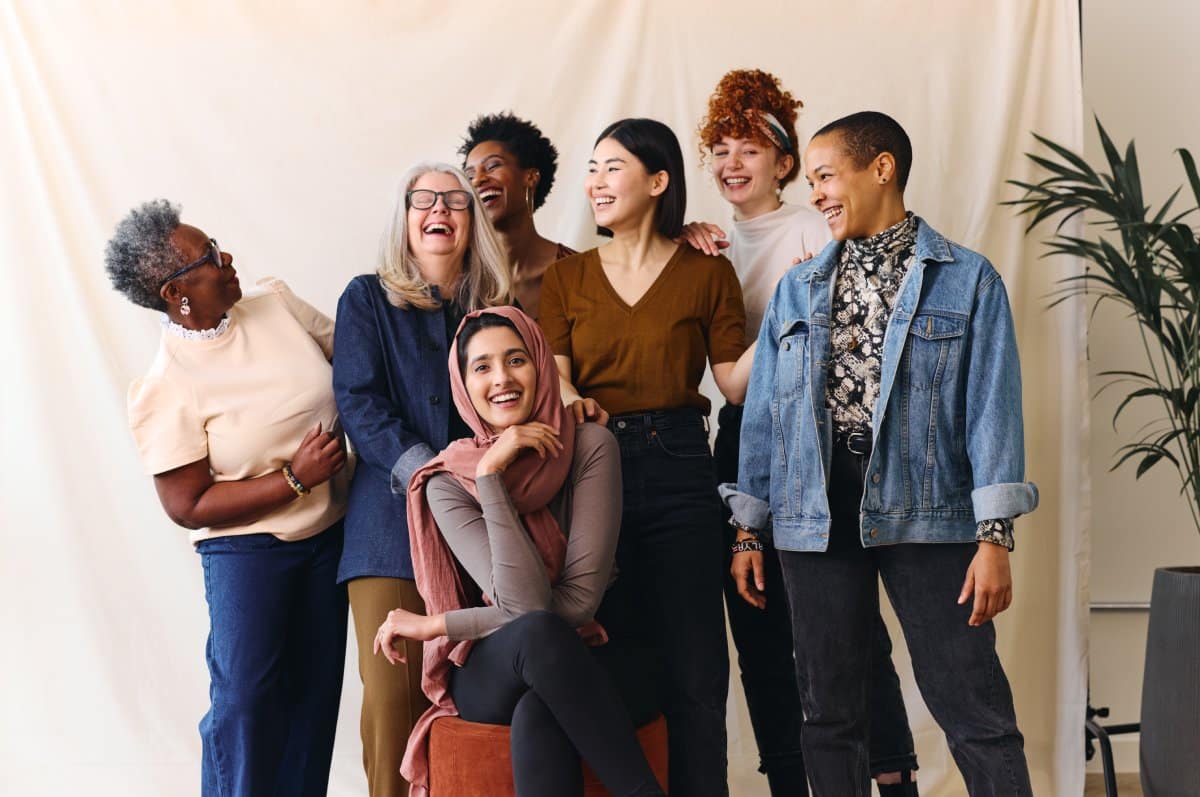Have you ever looked in the mirror and felt that familiar twinge of dissatisfaction? If you’re a white woman, you’re not alone. Recent research shows that white women are generally less confident about their bodies compared to women of color.
The Confidence Gap

A 2022 study published in the Journal of Body Image found that 63% of white women reported feeling unhappy with their bodies. Compare that to 45% of Black women and 38% of Latina women, and it’s clear there’s a confidence gap that’s deeply rooted in societal expectations and cultural influences.
The Burden of Narrow Beauty Standards

Why do white women struggle more with body confidence? One big reason could be the narrow beauty standards set by Western culture. For decades, the “ideal” body type has been tall, thin, and often unattainable.
Comparison and Dissatisfaction

White women, who are frequently the focus of these standards, end up caught in a cycle of comparison and dissatisfaction. It’s hard to feel good about yourself when the media constantly tells you that you’re not enough.
Different Cultures, Different Standards

In contrast, women of color often grow up with different beauty standards that celebrate a wider range of body types. A 2021 survey by Essence magazine found that 71% of Black women felt positive about their bodies, partly because curvier bodies are celebrated within Black communities. When you see people who look like you being celebrated, it’s a game changer for your confidence.
Media Influence: A Double-Edged Sword

Media plays a huge role in shaping how we see ourselves. White women are more likely to be bombarded with images of unattainable beauty, leading to feelings of inadequacy. On the flip side, the representation of women of color in media is on the rise, bringing more diverse body types into the spotlight.
Representation Matters

A 2020 study from the Journal of Communication showed that increased media representation of diverse bodies positively influenced body image among women of color. Seeing someone who looks like you being celebrated? That’s powerful.
Social Media: A Mixed Bag

Let’s not forget about social media. White women might feel more pressure to conform to the “Instagram ideal,” which often emphasizes thinness and perfection. Meanwhile, women of color might find communities online that celebrate body diversity and challenge traditional beauty standards.
The Challenge of Finding Body-Positive Content

A 2019 study by the Pew Research Center found that 58% of Black and Latina women reported finding body-positive content on social media, compared to just 43% of white women. Who you follow can make all the difference.
Aging and Body Image

Aging is another area where cultural attitudes come into play. In many Western cultures, youth is highly valued, which can cause anxiety about aging and body changes—especially among white women.
Less Confident As They Age

A 2020 survey by Allure magazine found that 52% of white women felt less confident as they aged, compared to 39% of women of color. Meanwhile, some cultures of color place a higher value on the wisdom and beauty that come with age, helping women feel more confident as they grow older.
The Power of Community Support

Community support is another key factor. Women of color often have strong community ties that promote body positivity and self-acceptance. These communities can provide a buffer against negative body image messages from the wider culture.
Embracing Their Natural Shape

A 2019 study by the American Psychological Association found that 65% of women of color reported feeling supported by their communities in embracing their natural body shape, compared to 48% of white women. It’s a reminder that who you surround yourself with matters.
Celebrating Body Diversity

One of the biggest differences between white women and women of color when it comes to body confidence is the celebration of body diversity. In many cultures of color, a variety of body shapes and sizes are not only accepted but celebrated.
A Healthy Relationship With Your Body

A 2021 study in the Journal of Cultural Diversity found that cultural pride and the celebration of diverse body types were strongly linked to higher body confidence among women of color. This kind of acceptance fosters a healthier relationship with one’s body, as women feel less pressure to conform to a single, narrow standard of beauty.
The Shift Toward Inclusivity

The good news? The tide is turning. The fashion and beauty industries are starting to feature more diverse models and body types, which can help all women feel more confident. However, there’s still work to be done to ensure that every woman, regardless of race, can feel beautiful and confident in her own skin.
Bridging the Confidence Gap

The difference in body confidence between white women and women of color highlights the powerful influence of culture, media, and community. By challenging narrow beauty standards and embracing diversity, we can help bridge the confidence gap and create a world where all women feel comfortable and confident in their own skin.
Featured Image Credit: Shutterstock / Southworks.
The images used are for illustrative purposes only and may not represent the actual people or places mentioned in the article.
For transparency, this content was partly developed with AI assistance and carefully curated by an experienced editor to be informative and ensure accuracy.





